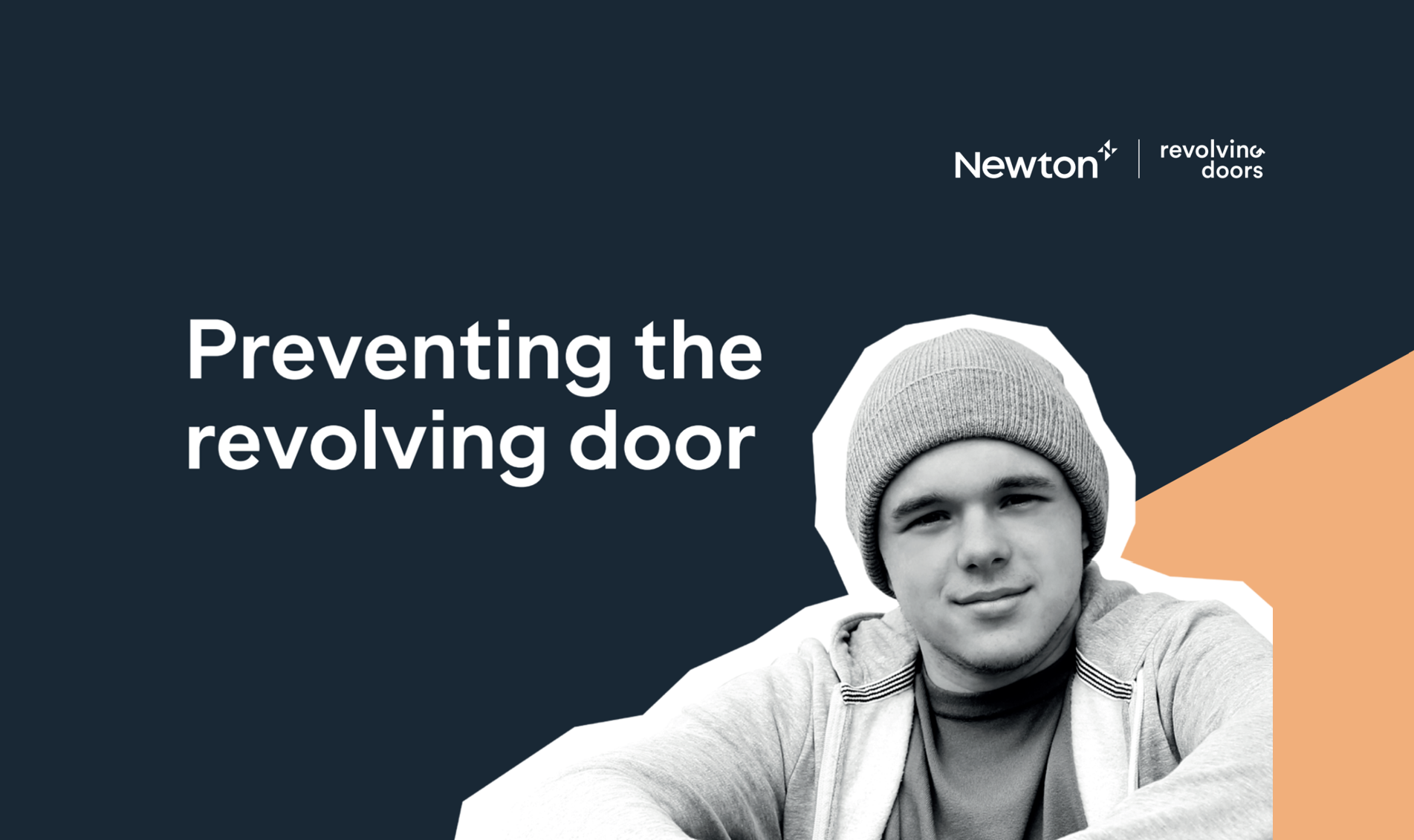Hit enter to search or Esc to close
New research reveals the hidden cost of the ‘revolving door’ of prolific offending in England
Market Report
6 min
20th October 2025

The hidden cost of England’s so-called “prolific offenders” – the people repeatedly in the headlines for shoplifting and low-level crime – is laid bare in groundbreaking new research by Newton in partnership with charity, Revolving Doors.
The report is the first of its kind, bringing together the insights of people with lived experience of the ‘revolving door’ of reoffending with innovative analysis of real public sector data, including case notes. It reveals new findings about the toll that punishment without rehabilitation and key missed opportunities has on people, public finances and public services.
The joint analysis finds:
- Between 30,000 and 50,000 individuals make up this group, trapped in cycles of repeat offending.
- They are responsible for at least 130,000 crimes a year, from shoplifting and assault to drug offences and criminal damage.
- True costs find that individuals cost more than £100,000 each year, with lifetime costs of over £1.4m.
- They cost the criminal justice system at least £242m annually, with a total socio-economic bill of up to £5.2bn. This figure represents almost a quarter of all reoffending costs and is the first ever measurement of this group’s impact on public services including the NHS, councils and social services.
Those in this group are often referred to as “prolific offenders”. This report identifies them more clearly to show they are in fact the ‘revolving door cohort’ – people in crisis who cycle in and out of the justice system because of unmet health and social needs, including mental ill health, addiction, homelessness and histories of trauma.
Crucially, this group is not captured by existing systems like Integrated Offender Management, which was set up to specifically target those identified as most persistently offending.
The research highlights how earlier intervention and targeted community-based support could free up capacity in prisons, courts and probation, while reducing anti-social behaviour and victimisation.
Ben Harris, Partner at Newton, said:
“By combining lived experience with cutting-edge data analysis, previously disconnected datasets and economic modelling, this report shows not just the scale of the problem, but the positive outcomes that can result from acting differently. It shows how bringing together and making better use of all the existing information available can change how we respond to potential repeat offenders, enabling earlier preventative actions that changes long-term outcomes for individuals.”
Pavan Dhaliwal, Chief Executive of Revolving Doors, said:
“Every day we see headlines about shoplifting and ‘prolific offenders’. This analysis reveals the real story: a small group of people, living with deep trauma and ill health, costing the country billions while receiving little meaningful support. The evidence is clear – we can either keep pouring money into crisis responses, or we can break the revolving door through prevention and rehabilitation.”
The report also draws on in-depth interviews from people with lived experience to show how vital it is to address their needs and support them. It says missed opportunities create a ‘revolving door’ effect, where public services react to crises, rather than prevent them.
Featuring detailed timelines of individual experiences, it shows that trauma and abuse – very often in childhood – is routinely the starting point for people’s entrapment in the revolving door, and that their first point of contact with the justice system is often as a victim.
Lewis*, a Revolving Doors lived experience member who was consulted for the research, said:
“For thirty years I was under the impression I was running my life when in fact my life was being controlled by my addiction to drugs. I lived feral, I was isolated, I destroyed my relationships – especially where my family was concerned – and lived in fear that the people who I thought were my friends would find out I was actually a terrified little boy.
I’m now six months totally abstinent, I do some amazing projects with Revolving Doors, I volunteer with a local charity, I’ve rebuilt family relations but most of all and most importantly, as long as I continue to put my head on my pillow every night still clean I know I have a choice.”
Holly*, another member, became caught in the revolving door following the breakdown of an abusive relationship. She said:
“I’ve experienced firsthand the cycle of crisis and crime stemming from unmet health and social needs, including struggles with undiagnosed borderline personality disorder, substance dependency, and the lasting impact of coercive control and parental alienation. This journey has been marked by repeated arrests and imprisonment, highlighting the need for more effective support systems to address the root causes of these issues. The user journey project helped me understand how unmet health and social needs perpetuated my cycle of crisis and crime. I hope this research informs effective support systems to break similar cycles for others.”
As a result of the research, Revolving Doors is now calling for a joint-departmental Government response across health, justice and housing. They are also requesting a focus on interventions that are known to work to address the root causes of offending and a joined-up approach that combines shared data, thinking and lived experience.
Revolving Doors has made the following recommendations as a result of the analysis:
- Early multi-agency support in schools and families
- Pre-arrest diversion and reformed community sentences
- Peer support from those with lived experience
- Trauma-informed services rooted in local communities
- Cross-government leadership to drive reform

